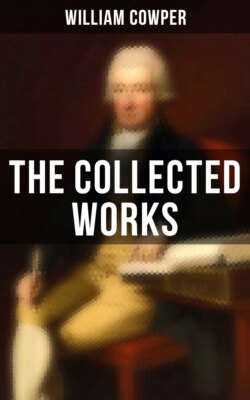Читать книгу The Collected Works - William Cowper - Страница 199
На сайте Литреса книга снята с продажи.
IN SUBMERSIONEM NAVIGII, CUI GEORGIUS, REGALE NOMEN, INDITUM.
ОглавлениеTable of Contents
Plangimus fortes. Periere fortes,
Patrium propter periere littus
Bis quatèr centum; subitò sub alto
Æquore mersi.
Navis, innitens lateri, jacebat,
Malus ad summas trepidabat undas,
Cùm levis, funes quatiens, ad imum
Depulit aura.
Plangimus fortes. Nimis, heu, caducam
Fortibus vitam voluere parcæ,
Nec sinunt ultrà tibi nos recentes
Nectere laurus.
Magne, qui nomen, licèt incanorum,
Traditum ex multis atavis tulisti!
At tuos olim memorabit ævum
Omne triumphos.
Non hyems illos furibunda mersit,
Non mari in clauso scopuli latentes,
Fissa non rimis abies, nec atrox
Abstulit ensis.
Navitæ sed tum nimium jocosi
Voce fallebant hilari laborem,
Et quiescebat, calamoque dextram im-
pleverat heros.
Vos, quibus cordi est grave opus piumque,
Humidum ex alto spolium levate,
Et putrescentes sub aquis amicos
Reddite amicis!
Hi quidem (sic dîis placuit) fuere:
Sed ratis, nondùm putris, ire possit
Rursùs in bellum, Britonumque nomen
Tollere ad astra.
Let the reader, who wishes to impress on his mind a just idea of the variety and extent of Cowper's poetical powers, contrast this heroic ballad of exquisite pathos with his diverting history of John Gilpin!
That admirable and highly popular piece of pleasantry was composed at the period of which we are now speaking. An elegant and judicious writer, who has favoured the public with three interesting volumes relating to the early poets of our country,[153] conjectures, that a poem, written by the celebrated Sir Thomas More in his youth, (the merry jest of the Serjeant and Frere) may have suggested to Cowper his tale of John Gilpin; but this singularly amusing ballad had a different origin; and it is a very remarkable fact, that, full of gaiety and humour as this favourite of the public has abundantly proved itself to be, it was really composed at a time when the spirit of the poet was very deeply tinged with his depressive malady. It happened one afternoon, in those years when his accomplished friend, Lady Austen, made a part of his little evening circle, that she observed him sinking into increasing dejection. It was her custom on these occasions, to try all the resources of her sprightly powers for his immediate relief. She told him the story of John Gilpin (which had been treasured in her memory from her childhood) to dissipate the gloom of the passing hour. Its effect on the fancy of Cowper had the air of enchantment: he informed her the next morning, that convulsions of laughter, brought on by his recollection of her story, had kept him waking during the greatest part of the night, and that he had turned it into a ballad.—So arose the pleasant poem of John Gilpin. It was eagerly copied, and, finding its way rapidly to the newspapers, it was seized by the lively spirit of Henderson the comedian, a man, like the Yorick described by Shakspeare, "of infinite jest, and most excellent fancy." By him it was selected as a proper subject for the display of his own comic powers, and, by reciting it in his public readings, he gave uncommon celebrity to the ballad, before the public suspected to what poet they were indebted for the sudden burst of ludicrous amusement. Many readers were astonished when the poem made its first authentic appearance in the second volume of Cowper.
